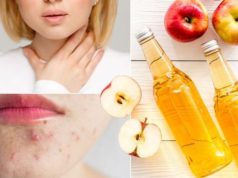Rhodiola Rosea is a medicinal plant native to the wild Arctic regions of Alaska, Asia, and Europe.
The use of this plant for medicinal purposes dates as far back as the first century AD when the Greek physician Dioscorides mentioned it.
It is also commonly used in countries like France, Greece, Iceland, Russia, and Sweden. Also known as Arctic root, roseroot, or golden root, the Rhodiola Rosea is known for its “adaptogen” properties.
Scientists believe it is capable of enhancing the body’s resistance to both emotional and physical stress. It’s also good for boosting energy, strength, and endurance levels as well as increasing brain capacity.
However, further scientific research needs to be carried out to test its effectiveness for these claims.
Uses
This medicinal plant and its supplements can be used to improve the following conditions. However, there is not enough evidence to support these uses.
Anxiety
Early research shows that taking specific Rhodiola extract might lower anxiety and depression in people suffering from a condition called generalised anxiety disorder.
Another study suggests that anxiety levels than feelings of confusion and anger can be managed by taking a specific Rhodiola extract twice daily for two weeks. It can also improve poor mood in college students with anxiety.
Stress
Early studies suggest that when college students with anxiety and people going through life stress consume a specific Rhodiola extract before breakfast and lunch can reduce stress symptoms.
Premature ejaculation
Early evidence suggests that a man’s control over ejaculation and how long it takes to ejaculate can be slightly improved by taking a specific product made with Rhodiola and other ingredients. However, more quality research is needed to support this use.
Enhancing athletic performance
There’s a debate on the effectiveness of Rhodiola in improving the overall performance of athletes. Generally, it appears that short-term doses (not long-term) of Rhodiola might and handsome measurements of performance in athletes.
However, neither the long-term or short-term doses appeared to reduce muscle damage due to exercise or improve overall muscle function.
Fatigue
Early evidence suggests that Rhodiola might reduce fatigue in stressful situations. The specific Rhodiola extract seems to increase a sense of well-being while reducing fatigue in night shift workers sleep-deprived army cadets and students taking exams.
Other Rhodiola extract also helps to reduce mental fatigue in adults experiencing burnout and in first-year college students.
There is contradicting evidence relating to a combination product containing Siberian ginseng extract schizandra, Berry extract, and Rhodiola extract.
Some studies review it enhances mental performance in exhausted individuals performing mental tasks. Other studies show it doesn’t work.
- Ageing
- Cancer
- Hearing loss
- Diabetes
- Stress-associated heart disorders
- Increasing energy
- Irregular heartbeat
- High cholesterol
- Other condition
Possible side effects
Short-term intake of Rhodiola is considered safe over the safety of long term intake is not Known. Possible side effects of Rhodiola are generally mild to moderate, and they include
- Dry mouth
- Dizziness
- Headache
- Stomach upset
- Excessive production of saliva
- drowsiness
- Difficulty in falling asleep
Rhodiola is not recommended for pregnant women and breastfeeding mothers as there’s limited information about his safety in these conditions. It’s best to avoid usage and be on the safer side.
Patients with autoimmune diseases are also advised to avoid the usage of Rhodiola Rosea. In theory, it might stimulate the immune system, which may worsen autoimmune diseases such as rheumatoid arthritis (RA) multiple sclerosis (MS) and others.
Dosage
The recommended daily intake of Rhodiola Rosea for adults is 100 to 300 mg. There is no specified recommended intake for children due to insufficient scientific evidence.
You should consult a health care provider or doctor to get a suitable recommendation for you or read the label on their products for the proper dosage.
What to look for?
Rhodiola is available in different forms, such as cheese extract and capsules, with capsules being the most used form of the product.
When going for a Rhodiola supplement (or any other supplement) the National Institute of health advisors that you check for a supplement facts label on the product you choose.
The facts label will contain essential information about the product, like the amount of active ingredients each serving parks as well as other added ingredients like binders fillers and flavourings.
Also, the organisation advice that you go for products with recommendations and seal of approval from third-party organisations that test product quality like the NSF International, consumerlab.com, and U.S. Pharmacopeia.
The seal of approval from any of these organisations does not guarantee the safety and effectiveness of the products.
However, it provides assurance that the product does not contain any form of harmful substance and that it was manufactured properly with all the ingredients listed on the label.
Bottom line
Rhodiola Rosea is used to treat a variety of conditions such as depression, anxiety, and premature ejaculation. However, more research needs to be conducted to determine whether it’s effective in treating these conditions.
Always read the labels of products containing this plant or speak with your doctor before using any of them.












